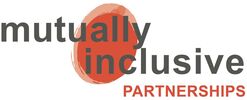Introduction
Currently, fewer than 6% of people with learning disabilities are in paid work.[1] We know this figure represents a drop from previous years.
We know that people with learning disabilities can and do make hard working and enthusiastic employees, bringing new skills, talents and perspectives to their employers. We also know that when we give good quality support to people interested in work we can match their skills interests and aspiration to the need of local employers and get good outcomes.[2]
However, far less is known about how that support relates to people interested in exploring self employment opportunities despite the fact that a growing number of people with learning disabilities are using self employment as a way into work.
This is a two year study to look at how people with learning disabilities are being supported to set up their own business, the role of supported employment agencies and the types of supports available
Aims
We want to further develop self employment as a realistic option for people with learning disabilities as they set out on their employment pathway and to know more about:
We will use a range of different methods including questionnaires, focus groups and interviews to understand more about the experiences of people with a learning disability exploring self employment and small business ownership, gather lessons learned, and capture good practice.
Key stages
Stage 1: Questionnaires to Supported Employment providers and other support providers along with interviews with key stakeholders to generate an overall picture of the numbers of people being supported to set up their own business and.
Stage2: A more detailed look at a number of businesses, working with entrepreneurs to understand their journey and the supports they used to succeed
Stage 3: Analysis of data collection and field work
Stage 4: Dissemination of findings and the development of practice guidance.
Audience and outputs
We hope this work will be of interest to a wide range of organisations and individuals promoting and developing wider opportunities for independent living and especially:
The project will ensure a range of dissemination activities supported by publications and outputs including:
More information
For more information please contact
Keith Bates on 0779 605 3847 or email [email protected]
[1] Health and Social Care Information Centre -ASCOG data (2015-16– accessed 01/11/16 http://www.content.digital.nhs.uk/catalogue/PUB21900
[2] Dept of Health (2011) Valuing Employment Now. Supported employment and job coaching: best practice guidelines
Currently, fewer than 6% of people with learning disabilities are in paid work.[1] We know this figure represents a drop from previous years.
We know that people with learning disabilities can and do make hard working and enthusiastic employees, bringing new skills, talents and perspectives to their employers. We also know that when we give good quality support to people interested in work we can match their skills interests and aspiration to the need of local employers and get good outcomes.[2]
However, far less is known about how that support relates to people interested in exploring self employment opportunities despite the fact that a growing number of people with learning disabilities are using self employment as a way into work.
This is a two year study to look at how people with learning disabilities are being supported to set up their own business, the role of supported employment agencies and the types of supports available
Aims
We want to further develop self employment as a realistic option for people with learning disabilities as they set out on their employment pathway and to know more about:
- how people are supported to explore this option
- what is the nature of that support
- who is funding it
- how it fits with wider supported employment provision and wider Department of Work and Pensions provision such as the New Enterprise Allowance and Access to Work
We will use a range of different methods including questionnaires, focus groups and interviews to understand more about the experiences of people with a learning disability exploring self employment and small business ownership, gather lessons learned, and capture good practice.
Key stages
Stage 1: Questionnaires to Supported Employment providers and other support providers along with interviews with key stakeholders to generate an overall picture of the numbers of people being supported to set up their own business and.
Stage2: A more detailed look at a number of businesses, working with entrepreneurs to understand their journey and the supports they used to succeed
Stage 3: Analysis of data collection and field work
Stage 4: Dissemination of findings and the development of practice guidance.
Audience and outputs
We hope this work will be of interest to a wide range of organisations and individuals promoting and developing wider opportunities for independent living and especially:
- People with learning disabilities
- Families
- Educators
- Support providers
- Policy makers
- Commissioners
The project will ensure a range of dissemination activities supported by publications and outputs including:
- End of project policy and practice guidance including a summary and easy read version
- Case studies and learning stories
- A project blog will offer learning from the project and will be promoted through an allied twitter feed
- Potential academic papers through links with partner organisations
More information
For more information please contact
Keith Bates on 0779 605 3847 or email [email protected]
[1] Health and Social Care Information Centre -ASCOG data (2015-16– accessed 01/11/16 http://www.content.digital.nhs.uk/catalogue/PUB21900
[2] Dept of Health (2011) Valuing Employment Now. Supported employment and job coaching: best practice guidelines
© 2024 Mutually Inclusive Partnerships

